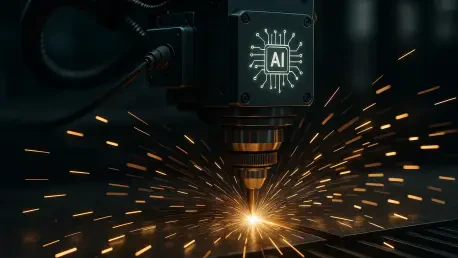Lasers have long been at the heart of manufacturing processes within aerospace and automotive industries, where precision and accuracy are non-negotiable. Yet, in the current landscape, the margin for error continues to shrink. According to recent industry insights, conventional methods that rely heavily on human intervention and manual calibration are increasingly falling short, necessitating a game-changing advancement in technology. This is where artificial intelligence makes its entrance.
Defining AI’s Role in Modern Manufacturing
In the fast-paced world of modern manufacturing, precision, speed, and efficiency are the new benchmarks. Yet, laser-based processes, despite their inherent precision, often struggle with variances caused by the intricate interaction between lasers and diverse materials. As global demands for streamlined and cost-efficient manufacturing surge, traditional methods, laden with time-consuming trials and expert reliance, no longer suffice. Enter AI, offering the promise of revolutionizing these processes by addressing rampant issues and democratizing access to cutting-edge technology.
Unpacking the Complexities in Laser Manufacturing
At the core of laser manufacturing lies a plethora of technical challenges driven by the miscalculations in material and laser interactions. Powder Bed Fusion (PBF), a form of 3D metal printing, exemplifies this challenge. Prior to production, manufacturers undertake extensive testing to establish optimal laser parameters—an endeavor both resource-heavy and intricate. Innovators in the field are now harnessing machine learning to refine these processes. By embedding data sensors within laser systems, real-time monitoring becomes feasible, significantly diminishing setup times and reducing material waste.
Expert Insights and Early Successes
Notably, researchers Giulio Masinelli and Chang Rajani from Empa’s advanced studies sector shine a light on promising AI solutions. They have spearheaded initiatives demonstrating how machine learning could diminish the need for initial tests, slashing labor by a staggering two-thirds without sacrificing outcome quality. Their work primarily focuses on enhancing PBF, which has rapidly emerged as a favored technique due to its ability to fabricate complex structures beyond traditional manufacturing’s reach. These strides are substantiated by narratives from companies that, as early adopters, witnessed substantial drops in operational costs and error margins.
Implementation Frameworks in Practice
Effectively integrating AI into existing manufacturing frameworks demands strategic planning and robust technology. Utilizing Field Programmable Gate Arrays (FPGAs) for real-time decision-making exemplifies vital technological advancements. Through meticulously designed algorithms, these tools perform rapid assessments and adjustments, ensuring laser processes remain precise amid fluctuating conditions. Furthermore, nurturing industrial alliances can accelerate AI adoption, inviting collaborative innovations and shared expertise, which are essential for navigating this transformative era.
The blend of AI and traditional laser technologies could shape the future of metal manufacturing processes significantly, offering unmatched efficiency and precision. In 2025, companies that harnessed AI benefited from streamlined operations and substantial cost reductions. Moving forward, ongoing collaborations will be crucial for industries aiming to capitalize on this technology, driving continued exploration and development focused on innovative applications tailored for dynamic production needs.









